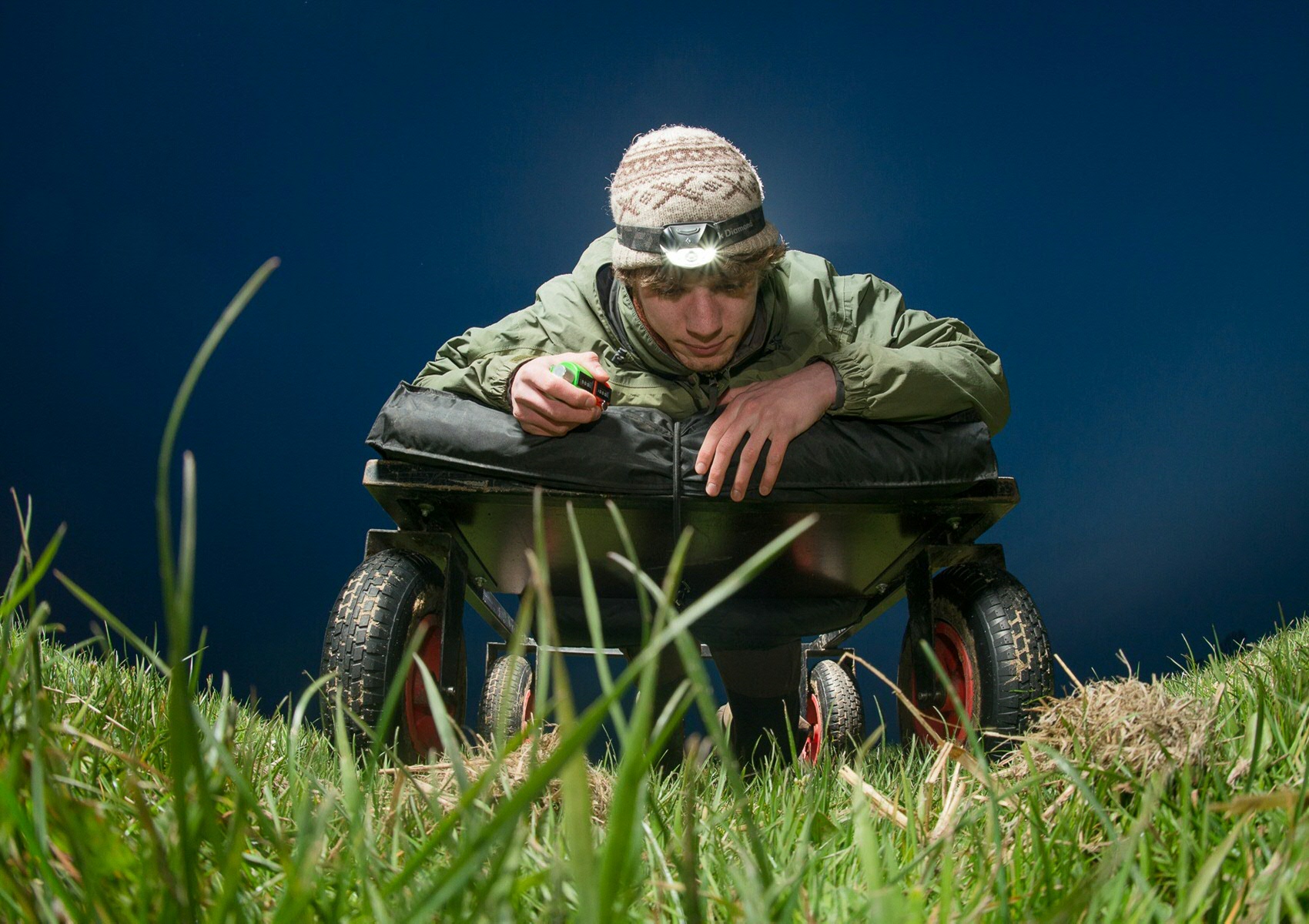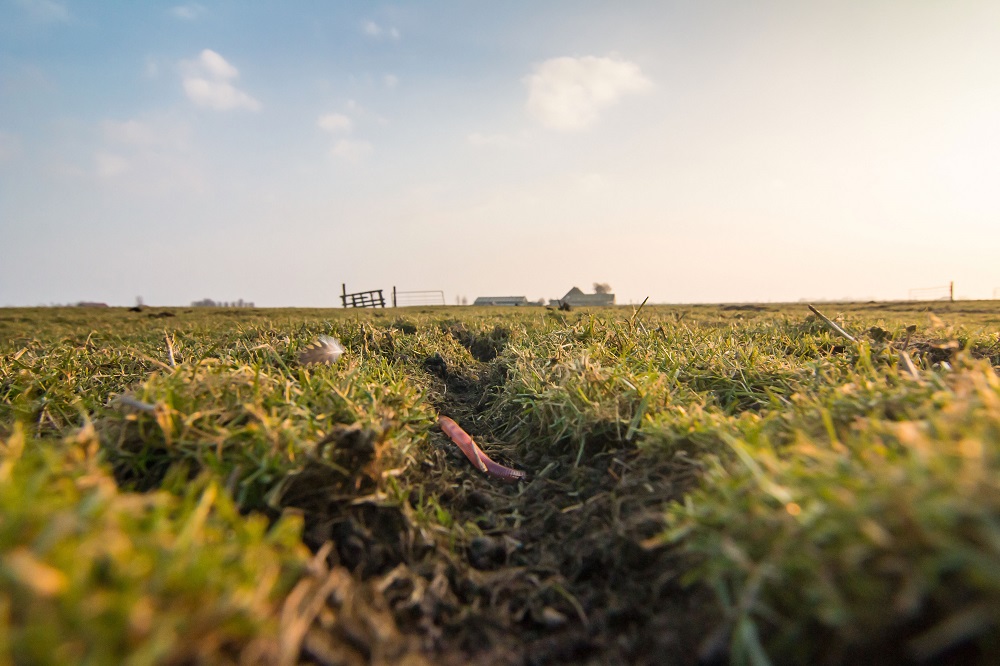Rough farmyard manure good for meadow birds and farmers
Red earthworms play a key role in soil fertilization and the availability of food for meadow birds in agricultural grassland. Jeroen Onrust conducted research into the interaction between farmers, worms and birds. He concluded that the role played by red earthworms is being impeded by soil dessication and bad fertilisation. His findings are also important in terms of ‘nature-inclusive farming’. Onrust will defend his PhD at the University of Groningen’s Campus Fryslân in Leeuwarden on 15 December 2017.
Jeroen Onrust studied how grassland management as deployed by dairy farmers affects earthworms in the soil and the availability of these earthworms to meadow birds. In addition, he tried to discover which earthworm ecotypes are important to meadow birds. He distinguished between two ecotypes according to colour: the red detritivores (dead organic material eaters) and the grey geophages (earth eaters). ‘Red earthworms search for food on the surface whereas grey earthworms always stay underground’, says Onrust.
Playing lapwing
Visually hunting meadow birds, such as the lapwing, forage for earthworms on top of the grass. Rather than taking soil samples, Onrust developed a new method for measuring the availability of earthworms to this type of birds. ‘I pretended to be a lapwing as it were. I constructed a cart so that I could lie prone and propel myself forwards using my legs. This enabled me to count the earthworms I saw on the ground.’
Onrust spent many a night outside counting earthworms, because this is when they come to the surface of the soil. ‘It was quite peaceful really’, he laughs. ‘Lapwings, golden plovers and other visually hunting meadow birds are most active at night. I heard them more than I saw them, or they flew overhead when I turned up in my cart, flat on my stomach.’

Friesland
Onrust conducted his research in fields belonging to dairy farmers in Friesland. Ninety percent of the agricultural land in this province is used by dairy farmers and it has the highest density of meadow birds in the Netherlands, as well as the highest population of earthworms in the Netherlands.
Dessication
Onrust discovered that the number of red earthworms on the surface depends on the degree of dessication of the soil and the fertilization. ‘Dessication is a big problem for meadow birds’, he says. ‘If the soil is moist, the worms remain active and the birds have enough food. But when the soil becomes dry, the red earthworms “shut down” and stop coming to the surface. The soil eventually becomes so hard that tactile hunting birds like the black-tailed godwit are no longer able to prick through with their bill.’
Soil disturbance
‘Farmers do not like dessicated soil either. The worms become inactive and the whole fertility cycle grinds to a halt.’
Experiments with higher groundwater levels don’t always have the desired effect. Onrust: ‘This probably has something to do with the disturbance in the soil. Agricultural processes such as injecting manure, ploughing and mechanized sowing cause the soil to lose its sponginess, so the top layer can’t retain water.’

Rough farmyard manure
The process of collecting organic matter on the surface and taking it into the ground is largely carried out by the red earthworms. So these worms, the bio-builders (ecosystem engineers), are the most important to the ecosystem of grasslands. But the detritivores are not thriving, mainly because farmers are using increasingly more slurry manure. ‘Rough farmyard manure, which contains straw as well as cow excrement, is rarely used these days, but this is the red earthworms’ main diet’, says Onrust. ‘They need rough organic matter such as blades of straw and leaves. Slurry manure is no good to them at all.’ All in all, Onrust’s findings are also important for ‘nature-inclusive farming’, which is currently in the spotlight.
Note to the editors
- Jeroen Onrust will be awarded a PhD by the UG’s Campus Fryslân, in the city hall in Leeuwarden on 15 December 2017 at 4.15 p.m. His supervisors are Prof. Theunis Piersma and Prof. Han Olff, both from the Groningen Institute for Evolutionary Life Sciences (GELIFES).
- - You can download the thesis Earth, worms & birds here.
- - For more information: Jeroen Onrust
More news
-
29 January 2026
Microplastic research - media hype or real danger?
-
27 January 2026
ERC Proof of Concept grant for Maria Loi
